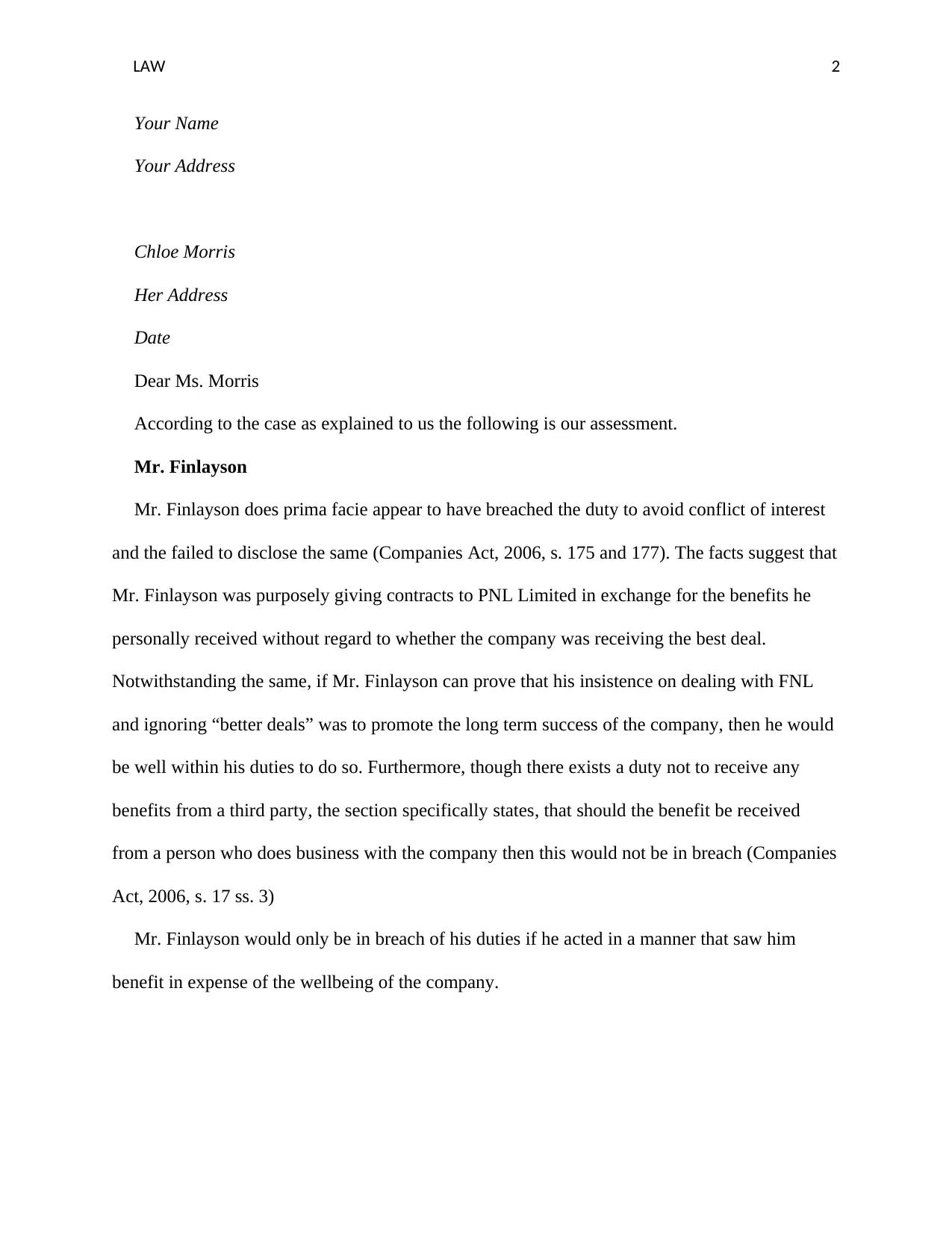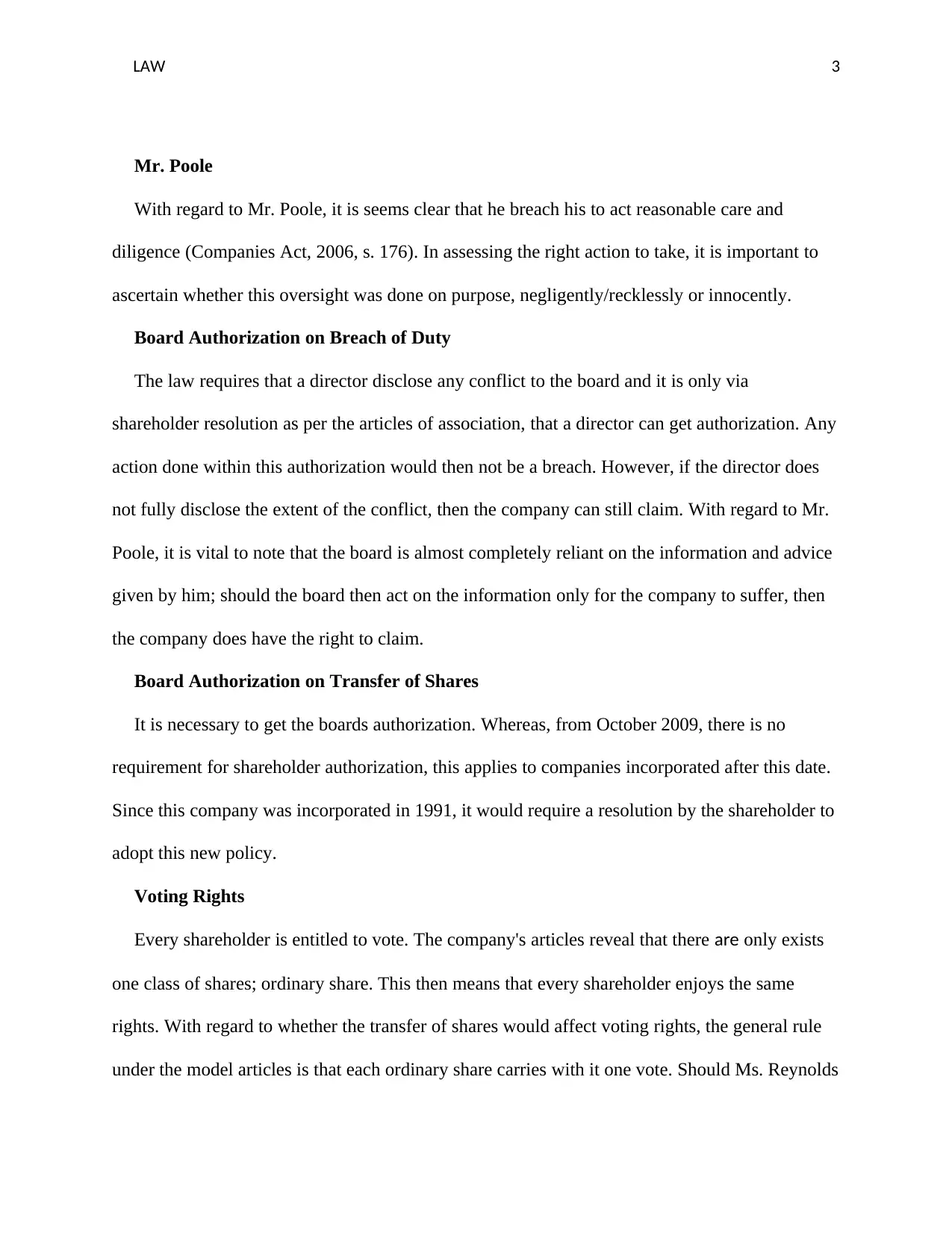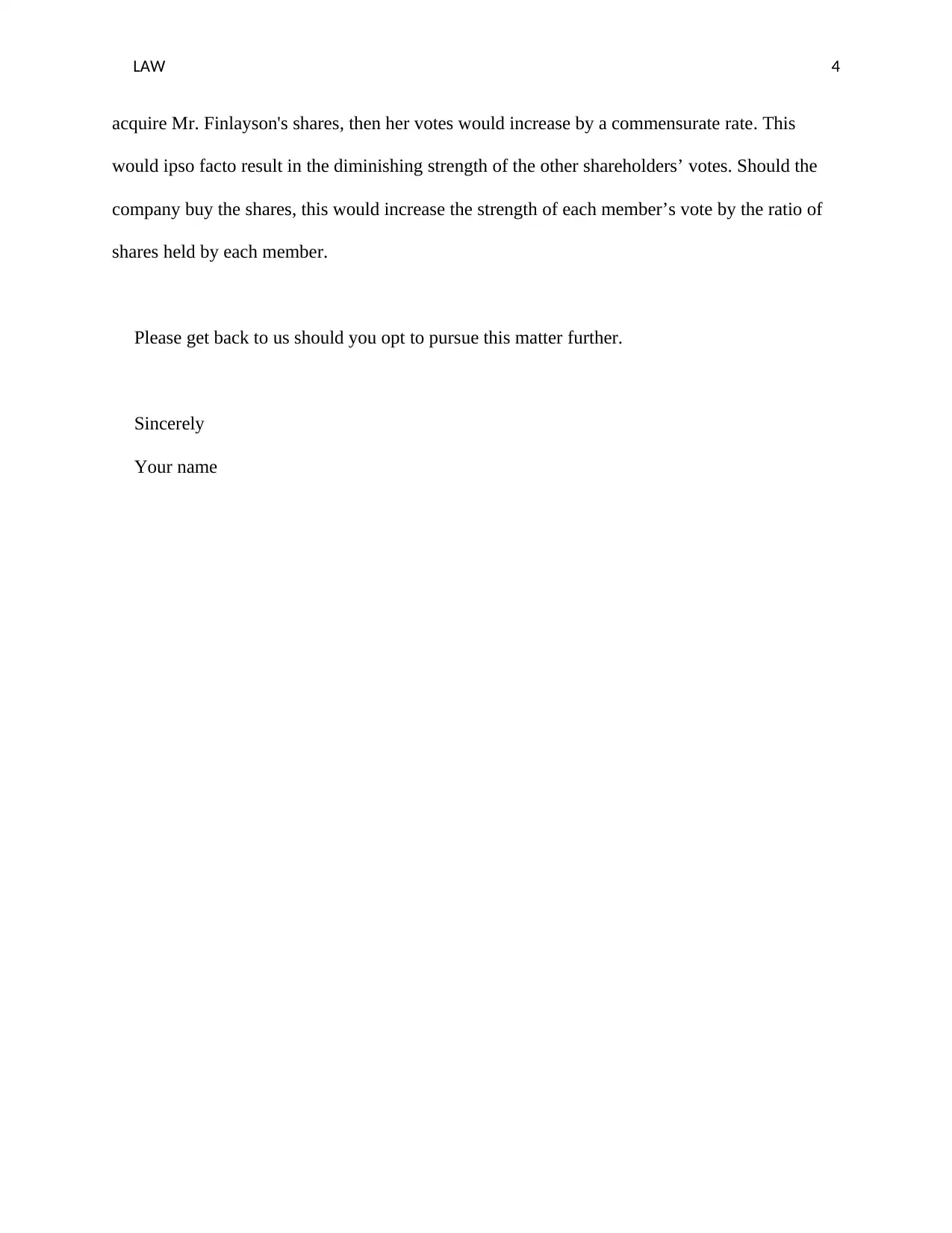Law Report: Director Duties, Shareholder Rights, and Company Law
VerifiedAdded on 2022/10/04
|4
|628
|20
Report
AI Summary
This legal report addresses concerns regarding potential breaches of director duties by Drew Finlayson and James Poole at Cumbrian Kibble Limited. The analysis examines whether Mr. Finlayson breached his duty to avoid conflicts of interest by favoring a supplier, Pet Nutrition Limited (PNL), potentially in exchange for personal benefits. It also assesses whether Mr. Poole breached his duty of care and diligence. The report delves into the requirements for board authorization, the impact of share transfers on voting rights, and the necessary steps for shareholders to take action. The report concludes with a discussion on the legal implications of the directors' actions and provides recommendations on how to proceed, emphasizing the importance of clear disclosure, board approval, and adherence to the company's articles of association. The analysis considers relevant sections of the Companies Act 2006, shareholder voting rights, and the potential impact of share transfers on voting power. The report also highlights the significance of the board's reliance on director information and the potential consequences of any oversight or negligence.
1 out of 4











![[object Object]](/_next/static/media/star-bottom.7253800d.svg)